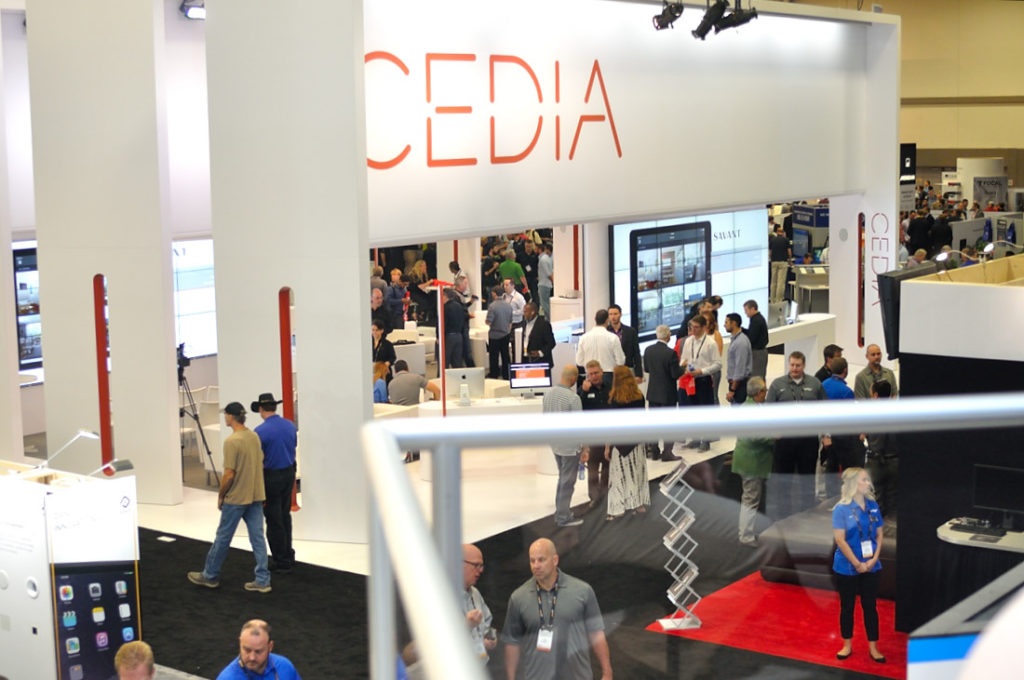 Indianapolis, IN-based CEDIA announced this week that it will build a new headquarters building in the neighboring town of Fishers, IN, after “more than 18 months of research, financial analyses, and due diligence.” This new “global headquarters” is the “best solution” as determined by the “CEDIA Board.” The announcement projected the project will cost $13.7 million.
Indianapolis, IN-based CEDIA announced this week that it will build a new headquarters building in the neighboring town of Fishers, IN, after “more than 18 months of research, financial analyses, and due diligence.” This new “global headquarters” is the “best solution” as determined by the “CEDIA Board.” The announcement projected the project will cost $13.7 million.
But, the announcement did not reveal one significant additional cost…
We were the first to reveal back in April that the Association was planning to build a new headquarters building in the town of Fishers, which is outside of Indianapolis. This was surprising news for us because in previous conversations, former CEO Vin Bruno had described to us their plans to completely upgrade the facilities in their existing location.
Then, in a secret communication from a source, we learned that local media – the Indianapolis Business Journal – had run an article about some controversy surrounding the site that CEDIA had selected to build their new headquarters. What was that controversy?
Zoning Precludes Non-Profits
It seems that CEDIA had selected a site with a special zoning provision that sought to preclude tax exempt organizations from building in that prime location. CEDIA is a non-profit organization known as a 501(C)6, which has met the requirements for exemption from taxes by the IRS. Normally, they would be exempt from a tax, but this zoning provision by Fishers appears to trump that exemption.
The town of Fishers wanted to retain this prime location for tax revenue generation, and so they took the step of invoking a special zoning ordinance preserving it for tax paying companies only. What this meant was, were CEDIA to go forward and build there, they would be forced to pay a substantial six-figure sum under a “minimum tax agreement.”
Minimum Does Not Mean Small
That minimum tax is not a one-time requirement – it would be required every year and according to the IBJ, it totals an impressive $141,710 annually, paid in two biannual installments of a little over $70,000 each. We found it surprising that a tax-exempt non-profit would deliberately choose to voluntarily pay a substantial tax when it had other options.
And we found it somewhat suspicious that when the IBJ contacted CEDIA for a comment on this story, they reported that: “CEDIA officials declined to comment on the relocation.”
CEDIA Confirms It Will Pay A Special Tax for This Location
We have confirmed that CEDIA will be paying this tax on the specific location they have chosen in Fishers to build their headquarters. We asked why they would choose to do this and received the following statement from Chairman Dennis Erskine”
We explored all options and as a 501(c)6, depending on the area, CEDIA may or may not have qualified for a tax-exempt status. However, a tax exemption would negatively and severely impact the ability for our for-profit members to use the space; there are strict guidelines on the types of events that can be hosted in a tax-exempt building and that was just not an option for its intended use. As well, as part of our plan to generate revenue with the building, we have an additional 10,000 square feet to let and we could not limit our potential renters to only non-profits. We certainly are not keen to pay property tax, and explored all options open to us as a 501(c)6, but it does ensure that this building can be utilized to its full extent by our members be it for training, client tours, meetings, or after-hours events. CEDIA will pay approximately $70,000 biannually on property taxes. The exact figure will be confirmed when the building is completed and assessed.
Erskine claimed that the Board “explored all options” and suggests that a non-profit would not be able to host an event with attendees from for-profit companies…something we’ve never heard of before. However, Erskine goes on to say that the organization would be restricted from renting the additional space they are building beyond their needs to other non-profits. If true, this could be sticky.
We have not consulted with tax experts so we can’t say for certain, but it seems to us that had CEDIA picked a location without this special tax provision, then the taxes on the portion of the building being rented out (10,000 sq.ft.) would be less than having to pay taxes on the entire property, as they have to do here because of a special zoning provision.
Former CEO Told Us They’d Go Elsewhere Rather Than Pay This Tax
What’s more, just two months ago we were told that CEDIA would never pay this tax, by then-CEO Vin Bruno. When we discovered this special tax requirement, we reached out to Bruno, who immediately reassured us that this was not going to happen.
Yes, Bruno admitted, CEDIA was planning to build a new headquarters building because, he maintained, it would be cheaper than renovating the current location. Apparently,CEDIA’s existing location, has a lease that is way too expensive and, Bruno told us, it was his “…last bad contract.”
Bruno maintains the organization could build an all-new building with a more effective layout for less money than it would cost to stay where they are. But, he insisted that the IBJ story got it all wrong.
How? As we reported previously:
We asked, why is the IBJ story wrong? We’re not paying any ‘minimum tax,’ Bruno tells us. As a result of the moves made by Fishers (the minimum taxpayer agreement identified in the IBJ article), Bruno says they are now looking elsewhere…perhaps Zionsville. ‘There may be an opportunity for CEDIA there.’
Apparently, the CEDIA Board has changed its mind.





Leave a Reply